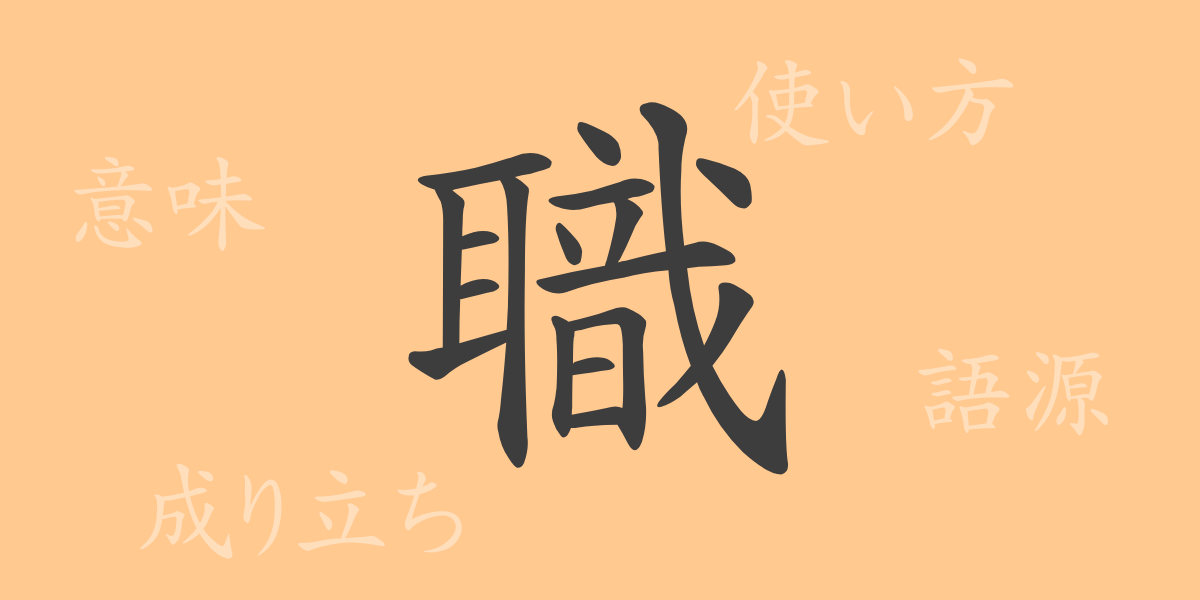The Kanji ‘職’ (ショク) embodies the richness of the Japanese language, deeply ingrained in our everyday lives. From work to social roles, the significance of this character is immeasurable. This article delves into the origins of ‘職,’ its modern usage, and related phrases and idioms, helping readers deepen their understanding of this character’s impact on Japanese language and its profound beauty.
Origins of 職 (ショク)
The Kanji ‘職’ originated in ancient China, initially representing craftsmen who wove textiles. It combines ‘耳’ (みみ), symbolizing ‘ear,’ with ‘戈’ (か), indicating weapons or struggle, reflecting commands or management in a job setting. Over time, ‘職’ evolved to signify ‘roles’ and ‘occupations’ broadly, reflecting one’s place and duties within society.
Meaning and Usage of 職
In modern Japanese, ‘職’ generally means ‘job’ or ‘occupation.’ It also refers to specific duties or roles, such as in the phrases ‘職に就く’ (entering a job) for someone starting a new position. Additionally, it describes professions with specialized skills or crafts.
Pronunciation, Stroke Count, and Radical of 職
The Kanji ‘職’ is widely used in Japanese, with the following details:
- Readings: On’yomi (オンよみ) ‘ショク’, no common Kun’yomi (クンよみ)
- Stroke Count: 18
- Radical: Ear (耳部(みみへん))
Phrases, Idioms, and Proverbs Involving 職
There are numerous idioms and proverbs that include ‘職,’ each with unique meanings:
- 専門職 (せんもんしょく): A profession or job that requires specialized skills.
- 職務経歴 (しょくむけいれき): A record or history of one’s professional experiences.
- 職人技 (しょくにんわざ): Expertise or skill of a highly trained craftsman.
- 天職 (てんしょく): One’s perfect job or calling.
- 職を失う (しょくをうしなう): To lose one’s job or to be dismissed.
Conclusion on 職
The Kanji ‘職’ not only signifies jobs or occupations but symbolizes the foundation supporting an individual’s societal identity and livelihood. From its origins to its contemporary applications, the character ‘職’ embodies the intricate layers of meaning within the Japanese language. Understanding the depth of ‘職’ and its related expressions offers a window into the importance of roles and duties within society, reaffirming the profound historical and cultural dimensions encapsulated in each Kanji character.

























